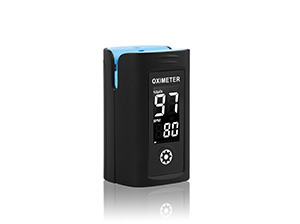What Types of Oximeters Are There? Which One is Best to Use?
-
2022-10-11
-
LEPU

Friends who have used oximeters know that oximeters can monitor the blood oxygen status in our body in time and determine whether there are potential risks. The effect is very good, so many office workers are also using them now. Oximeters are mainly finger-clip type, but in fact, there are more than these types. So what are the types of oximeters?
Ⅰ. What types of oximeters are there?
At present, there are four types of oximeters on the market, namely: fingertip pulse oximeter like pc-60fw fingertip oximeter, pc-60e fingertip oximeter, palm oximeter, pulse oximeter and watch oximeter; although these four types are different, each has its own advantages and disadvantages, so everyone should choose a suitable oximeter according to their own situation when purchasing.
Ⅱ. How to maintain the oximeter?
1. The outer shell of the oximeter should be kept free from dust pollution. It can be wiped with a soft lint-free cloth or a sponge soaked with detergent. Special care must be taken when wiping to ensure that no water can enter. When cleaning, be careful not to put liquid onto the instrument, making sure that no liquid can get inside the instrument.
2. The most common hospital cleaning fluids and non-corrosive detergents can be used to clean the oximeter, but it should be noted that many cleaning agents must be diluted before use, please follow the instructions of the cleaning agent manufacturer.
3. Avoid using alcohol-based, amino- or acetone-based cleaners; do not use abrasive materials such as wire brushes or metal polishes, which can damage the oximeter panel.
Ⅲ. Which is the best oximeter to use?
From a theoretical point of view, pulse oximeter and fingertip pulse oximeter are better; pulse oximeter adopts the theory of blood oxygen saturation, which is safe, non-invasive, convenient and accurate. These four aspects are what patients are most concerned about.
Now, pulse oximeters have been widely used in many fields; due to technological breakthroughs in pulse oximeters, interference factors such as light interference, noise interference, and low perfusion in the past have been very small for detection. The results obtained in this way are relatively accurate, so the pulse oximeter has been recognized by major institutions and authorities.
From the content of the above article, you can know that there are mainly four types of oximeters, each of which is very good, but in comparison, the pulse oximeter is more accurate, so you can choose the pulse type when you choose; but the most important thing is to meet your own conditions, so you must consider it comprehensively when choosing an oximeter.
